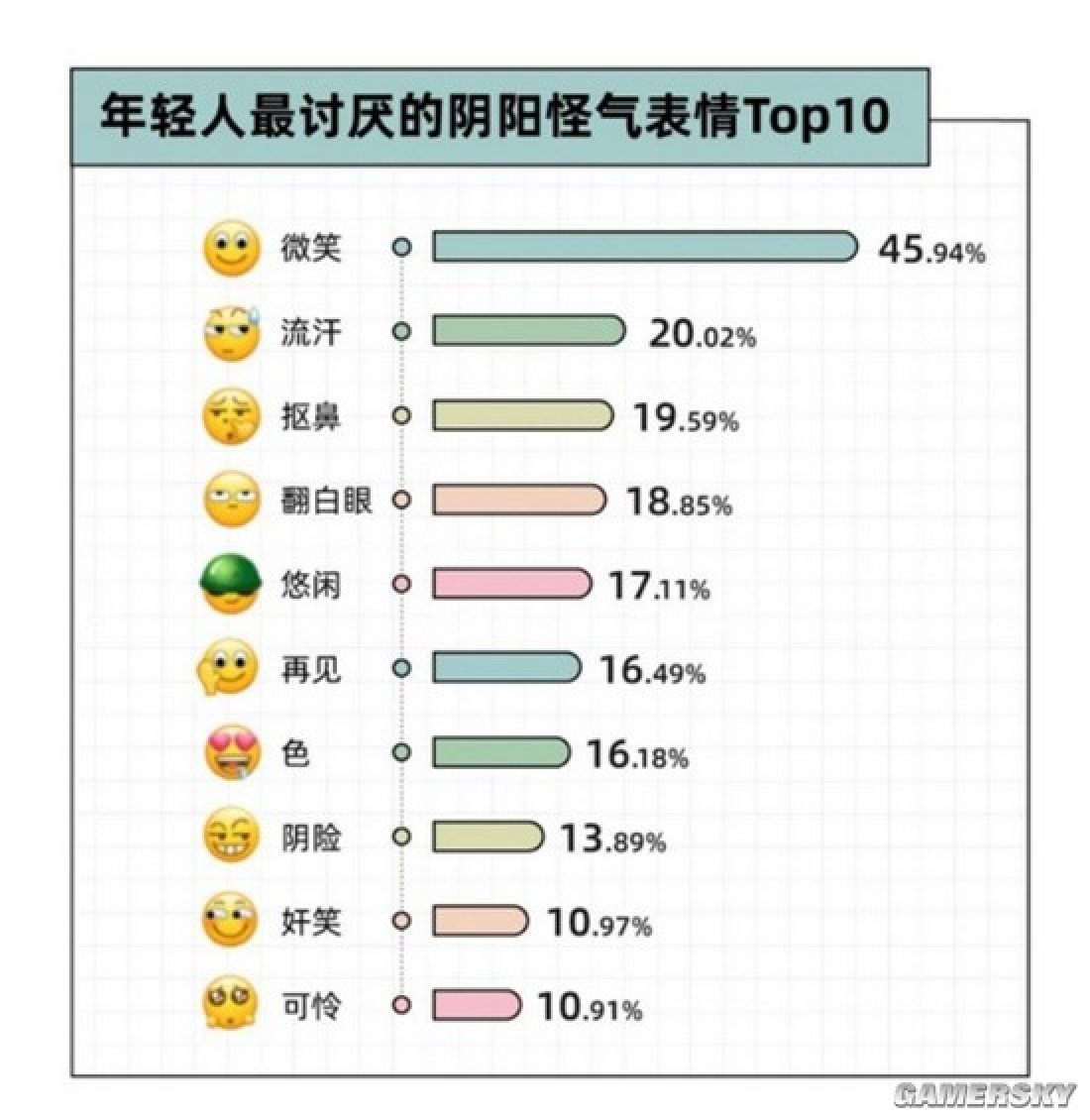
Despite their relatively short lifespan, “emojis” have become an essential part of everyday global communication.
They have also, it seems, taken on a life of their own when it comes to what they actually mean to different people, especially in China.
With more than 1.2 billion monthly active users, Tencent’s WeChat is the mainland’s most popular messaging app.
While the app’s in-built emojis which feature yellow faces with various expressions are slightly different from those on smartphones, they are popular, and some have assumed different meanings than originally intended.
In the case of young people in China, that often means a negative connotation.
A report on the 10 most hated WeChat emojis, carried out by the Chinese research institute Oh! Youth, and based on more than 1,600 questionnaires, went viral online last week.

The Post has discovered why certain emojis are disliked and has prepared a guide to the most hated, in reverse order.
10. Whimper
The least hated in the Top 10 list is surprising as it looks innocent and harmless. However, some said they disliked the emoji as it suggests the sender is begging them to do something they do not want to do.
9. Smirk
While senders of this think they are simply being playful and naughty, many receivers link it with being “up to no good” and as “frivolous”, especially when it is sent by a man to a woman.
8. Sly
This is one of the most unwanted emojis that women receive from men. Guys who use it are instantly labelled “greasy”, unwelcome types who appear overly confident yet are in fact mediocre.
7. Drool
Men should think twice before sending this to a woman because she will probably find it flirtatious and verging on creepy.
6. Bye
Originally designed as a simple, uncomplicated sign-off, in China a receiver may well think you never want to talk to them again. Due to the taunting look on the emoji many see it as “a go-to emoji when you want to break with your friends”.
5. Commando
You might think this one is saying that you are cool as a cucumber, but not so fast, your friend may well think you are being “greasy”. The original version had a cigarette in its mouth, but WeChat removed it in 2021.
4. Boring (eye rolling)
No one wants to receive this. In 2020, a man in eastern China’s Zhejiang province upset his blind date after sending it with his first message to her. She took it as mark of disrespect.
3. Nose pick
Many believe this signifies indifference or satire, and makes the receiver feel bad about themselves. Some simply find the vivid nose pick emoji “unhygienic”.

2. Speechless
Now we are getting into nuance. On Chinese social media, many express discomfort at receiving this emoji. “It makes me feel like I am so boring. Looking at it makes me feel bad,” one said. Some said it makes them feel inferior and looked down upon.
1. Smile
Counter-intuitively, the smiley face is the most hated emoji for young Chinese people. While the older generation use it to express their friendliness, it has completely the opposite meaning for youngsters, suggesting distance, derision and even disdain. Its negative energy is so strong that many have nicknamed it “deathly smile”. One online observer summed it up: “Whenever my boss or a colleague sends me this emoji, I feel panic.”
Indeed, in 2022, a woman in Shanghai was fired by her company after she insulted a colleague in the company’s chat group. She later took the company to court, explaining that her actions were in self-defence against her colleague’s “smile” emoji. – South China Morning Post
Credit: The Star : Tech Feed



